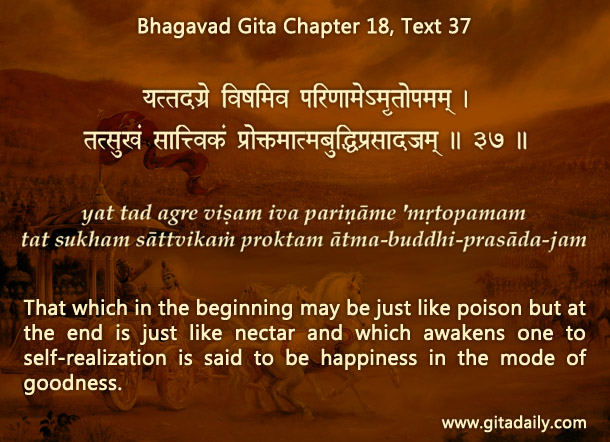Suppose a disease weakens us and kills our appetite. If we are provided a healing and energizing medicine, we don’t have to feel hungry to take it; we just have to understand how it is good for us. With that understanding, when we take the medicine, our health will improve, and our appetite will return.
To take a medicine for curing ourselves, the medicine doesn’t need to feel good to us; we just need to understand how it is good for us — we could consider this common sense with regards to physical health. Unfortunately, that sense becomes not-so-common when applied to our spiritual health. When we are spiritually weak and sick, we feel no attraction toward him; we feel no joy in remembering him or connecting with him.
At such times, we need to use our intelligence to study bhakti texts like the Bhagavad-gita and understand how linking with Krishna is good for us. We all are essentially souls, eternal parts of Krishna (15.07). He is eternal, as is our longing for love. Only by loving him can we fulfill that longing. Even if connecting with him feels like poison initially, it will taste like nectar eventually and eternally (18.37).
When this understanding powers our intelligence, we recommit ourselves to remembering Krishna, without obsessing over our present feelings. By such remembrance as we become increasingly connected with Krishna, we penetrate through the initial poison and relish the eventual nectar. As we thus become spiritually healthier, our devotional taste for Krishna returns.
One-sentence summary:
Intelligence helps us understand how devotion is good for us, even when it doesn’t feel good for us.
Think it over:
- What is essential and not essential for starting our recovery?
- How can we understand that Krishna loves us?
- What happens when we appreciate that Krishna loves us?
***
18.37: That which in the beginning may be just like poison but at the end is just like nectar and which awakens one to self-realization is said to be happiness in the mode of goodness.


Leave A Comment